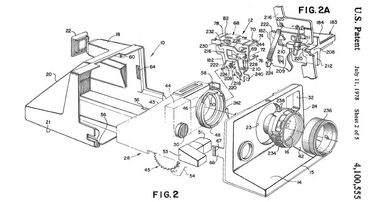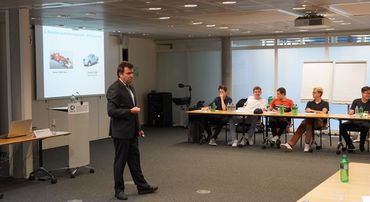The distance of 3,823 kilometres between Bern and Tehran could not be physically overcome because of the coronavirus. Nevertheless, both parties have become closer as a result. In various forms of online sessions, they developed a better understanding of each other's needs. IP rights are also important in Iran – especially for the vibrant start-up scene.
For IP professionals
This is the portal for professionals working in the field of intellectual property. Here you'll find direct access to all necessary resources.
Quick links
«We have overcome the challenge together»
The Swiss Federal Institute of Intellectual Property (IPI) is supporting Iran in strengthening its IP system. Zeinab Ghafouri, the IPI’s project manager, takes stock one year since the project was launched. In an interview, she talks about collaborating via video, what has been achieved so far and discusses cultural differences.
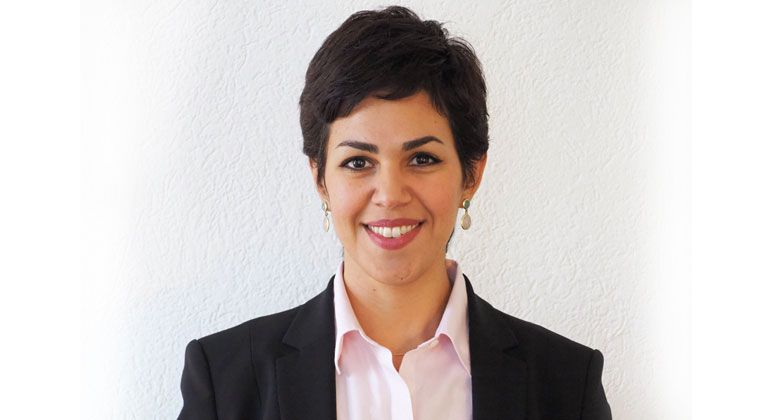
A year ago, the IPI started a cooperation with Iran. How did it come about?
Zeinab Ghafouri: International technical cooperation in the field of intellectual property is part of the IPI's legal mandate. The background to the cooperation between Switzerland and Iran is the roadmap for strengthening the bilateral relations of 2016 and the trade agreement that entered into force in 2017. Both agreements also cover technical cooperation in the field of intellectual property. The project with Iran is one of several international cooperation projects run by the IPI. This particular one is fully financed by the IPI, while the other ongoing projects are financed by the State Secretariat for Economic Affairs (SECO). In 2018, the Intellectual Property Office (IPC) in Iran contacted us for the first time and in October 2019, we signed the cooperation agreement. We then began implementing the project in January 2020.
What is the aim of the project?
In consultation with our Iranian partners, we want to strengthen the IP system there at various levels so that it is even more in line with the global system and so that IP rights are well protected. This work also supports Iran's economic development. Our project includes, for example, a review of the current IP legislations, training sessions and technical advice. In addition to the IPC, we are in contact with various Iranian ministries, the creative industries and start-up companies to find out what their needs are and to advise them accordingly. They really need to be able to benefit from this IP system. The large number of products with geographical indications (GIs) is also impressive. These include, for example, carpets, saffron, pistachios and handcrafted products. They should also be able to benefit from the IP system, which is why the project focuses on this topic, among others.
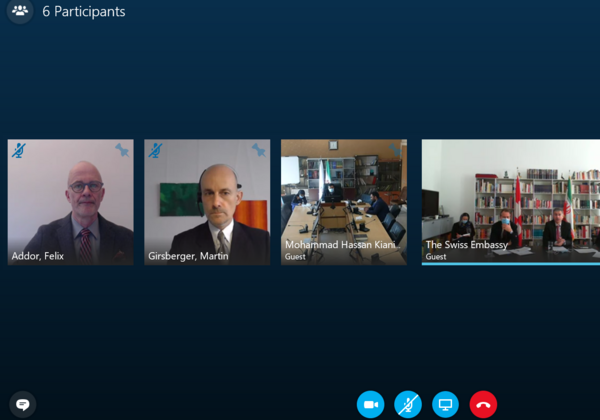
How does Iran manage intellectual property?
There is an existing IP system. However, it needs to be updated to be more in line with the global IP system. We were asked by the Iranian partners to support them with consultations and training in this regard. The aim is to show even more of the potential of IP and to help IP users, such as the founders of start-ups, to benefit even more from the IP system.
What does the start-up scene look like?
It’s big and active. There are top IT people such as programmers working in numerous technology parks. Using intellectual property and its protection for commercialisation is also a big topic in the start-up scene.
As project manager, what is your assessment after twelve months?
I’m very satisfied with what we have achieved because the past year was challenging. Apart from one visit in early 2020, we had to build and implement the entire project online because of corona. Normally, to establish personal contacts and implement project activities, missions take place on site for five to ten days. This way, you get a feel for the context and the people. However, mutual visits were not possible because of corona. The virtual solution was a big challenge for both sides, but we all mastered it with a lot of commitment and flexibility. In some cases, we were even able to achieve better results.
Do you have an example?
Yes, this was the case, for example, for GI products. Usually, our experts study the context of the products in question and then go on a longer mission on location. They meet with representatives of government agencies and ministries, producers of local GI products, processors and other relevant stakeholders. Our experts aim to take in as much information as possible and process it into concrete proposals when they get back. Since a mission was out of the question due to corona, we changed the approach and gathered this information through a written survey and coaching sessions. In this way, information was gathered over three months via a thorough analysis of the context and discussions with our Iranian partners. The results obtained are so much more advanced because our experts had more time for clarification.

How should we imagine your work in concrete terms?
We not only talk to our main partner, the IPC, but also work with many other Iranian ministries and agencies in the field of patents, trade marks, copyright and GIs. There are additional partners from the private sector and producers of agricultural and handcrafted products. The most important thing for me, especially in the first year of the project, is that we have been able to build the relationships and trust between those involved in the project. I know from experience that building trust is central because only then can the project implementation run smoothly. This costs a lot of time, but it is crucial to the success of a project. Both sides need to know who does what, get to know each other's way of working and ask each other about their needs and expectations.
Iran and Switzerland are not only far apart geographically, but also culturally. How do you deal with cultural differences?
The cultural differences are significant and it’s true for both sides. The most important thing is empathy and that everyone involved understands how the other partner acts and why they do so. It’s not always easy to put yourself in the other side's shoes. Sometimes, it’s simply a matter of understanding and accepting the context.
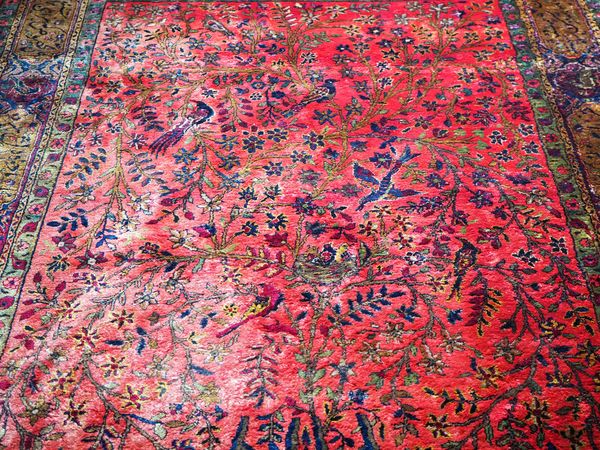
Do you have an example of the differences?
We work from Monday to Friday. In Iran, however, they work from Saturday to Wednesday. So we only have three working days together per week. We managed that well. I’ll give you another example: the Swiss are known worldwide for their punctuality. In Iran, people are still on time if they are 10-15 minutes late. We have also come to grips with that for the most part. Nowadays, the representatives of both sides are online a full 30 minutes before a video call.
When you were setting up the collaboration, were you more of a referee or a bridge-builder?
I see myself as a bridge-builder. As an Iranian, I understand the culture. That helped a lot with the contacts. It was important that I could travel to Tehran in 2019 for the planning of the project and in early 2020 for the start of the implementation. This allowed me to get to know the partners personally. In our cooperation strategy, the first priority is that we try to understand the other side. I listen to everyone involved and bring them together. I think that in this first year of implementing the project we have managed to build a lot of trust with our Iranian partners. They are very motivated and appreciate our cooperation. We are also committed to our goals in this project.

